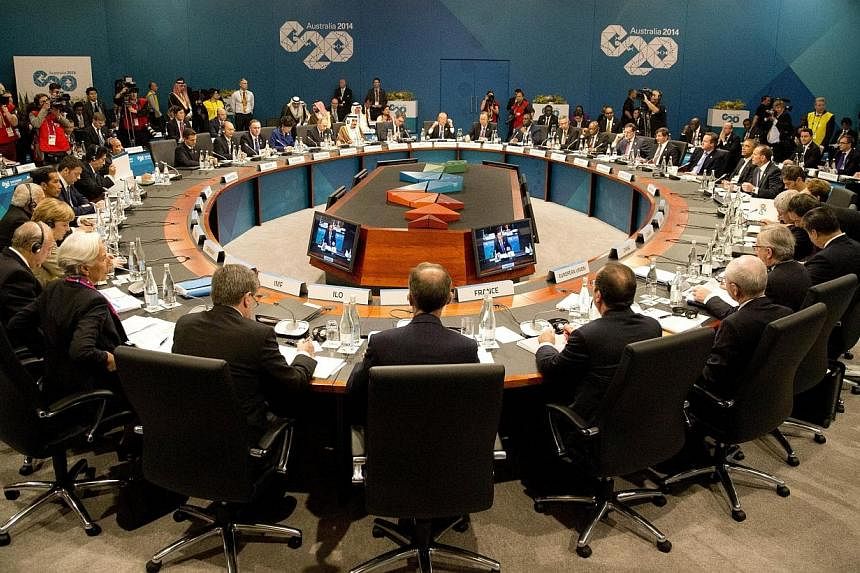Group of 20 (G-20) nations, which collectively comprise 85 per cent of the world economy, wrapped up their annual summit on Sunday (Nov 16, 2014) with agreement on a range of issues, primarily economic.
Here are eight key outcomes from the summit:
1. Global economic growth
The leaders of the world's most powerful industrial economies pledged to grow their combined economic output by an extra 2.1 per cent - or about US$2 trillion (S$2.6 trillion) - over the next five years. This was above the 2.0 per cent goal they were initially targeting. Their strategy to achieve this goal through domestic policy reforms will be known as the "Brisbane Action Plan".
2. Infrastructure Investment
The summit agreed to launch the Global Infrastructure Initiative to unlock private financing for infrastructure investment worldwide, including the creation of a Global Infrastructure Hub based in Sydney to support best practices and coordination.
3. Trade liberalisation
Increased global trade will be a requirement if the G-20 is to achieve its growth target. The leaders committed to implement all elements of the Bali package and swiftly define a World Trade Organisation work programme on the remaining issues of the Doha Development Agenda to get negotiations back on track.
4. Tax and financial regulation
G-20 leaders agreed to complete by the end of 2015 an implementation plan on combating tax avoidance by multinational companies. They also vowed to strengthen financial institutions, protect taxpayers from having to fund bailouts of "too big to fail" banks and to make derivative markets safer.
5. Climate
The leaders committed to addressing the challenge of climate change, including communicating post-2020 domestic climate targets as soon as possible and preferably by the first quarter of 2015. They also stressed the importance of climate finance, including contributions to the Green Climate Fund.
6. Energy
The summit had a session dedicated to global energy issues for the first time and agreed that energy would now be at the heart of the G-20 agenda, with strong and resilient energy markets critical to economic growth. They asked energy ministers to meet and report back on options to take this work forward.
7. Gender equality
The summit won a commitment by each country to close the gap between its male and female labour-force participation rates by 25 per cent by 2025. This will bring an estimated 100 million additional women into the labour force by that year.
8. Ebola
While not on the official agenda, leaders expressed support for an urgent coordinated international response to the crisis raging in west Africa. They called on international financial institutions to assist affected countries in dealing with the economic impact of the humanitarian crisis.
SOURCE: AFP

